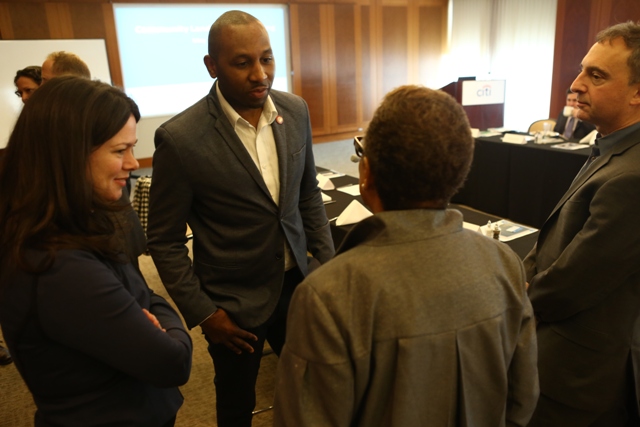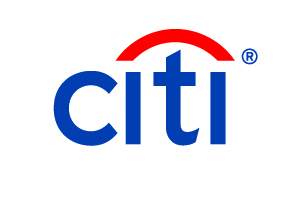
Executive Director Christie Peale with Board Member and City Councilmember Donovan Richards.
Over the last several months, the Center worked with long-time partner Citi Community Development to craft a unique event on community land trusts. The May 1st convening was attended by many partners from our network of housing counseling and legal services organizations, local government officials, including City Councilmember and Center board member Donovan Richards, and other community development professionals, in particular many of our partners from the financial services industry. The event featured a presentation by the National Community Land Trust Network and a lively discussion regarding the feasibility of implementing a land trust model in New York to preserve affordability for 1-4 unit homes.
CLTs are nonprofit organizations that provide opportunities for lower and middle income homeowners to build wealth, while also ensuring that the public’s investment in the CLT remains permanently “in the home” to help future lower and middle income buyers. Generally, CLTs use resale restrictions based on formulas or percentages of area median income to ensure that the homes in the CLT are affordable to people at certain income levels. Typically, in CLT homeownership, a buyer owns the improvements upon the land, including the home, but leases the land from the CLT through a 99-year ground lease. However, CLTs accomplish the goal of permanent affordability in various ways throughout diverse parts of the country, including in large cities with high property values such as San Francisco, Washington D.C., and Chicago. For more information on how CLTs operate, please see the Community Land Trust Network’s helpful resources page. For a fascinating history of the most well-known existing CLT in New York City, see this article.
At the May 1st convening, Beth Sorce and Melora Hiller of the Community Land Trust Network gave a compelling presentation on the value of CLTs in preserving affordable homeownership in perpetuity, and in ensuring that any subsidies provided to homeowners are used to preserve affordability in the long-term, rather than being “lost” to properties that are converted to market rate prices. As home prices continue to rise in New York City, the Center is concerned that past and existing affordable homeownership programs in the city do not provide stringent or lengthy enough affordability restrictions to ensure that homes remain affordable. This results in a loss of affordable housing stock, and a loss of public investment.
After the presentation, Caroline Nagy, Policy Manager at the Center, facilitated a lively discussion between the attendees on the possibilities and challenges that a CLT would pose in New York City. Amongst other topics, the attendees discussed how a CLT could potentially facilitate neighborhood stabilization and help to counter the impacts of gentrification, and how CLTs could be more effective than some previously used models in maintaining long-term affordability. The Center continues to advocate for permanently affordable homeownership programs, such as CLTs, and looks forward to working with its partners in a new coalition focused on 1-4 family homes to make ideas like this a reality in New York City.
We’ll be exploring more new approaches to protecting affordable homeownership at our fall conference (more information coming soon so stay tuned to our blog). If you are interested in sponsorship opportunities, please email Development Manager Sarah Kate Wagner at Sarah.Kate.Wagner@cnycn.org.
Find more photos on our Facebook page.
Thank you to our sponsor:




